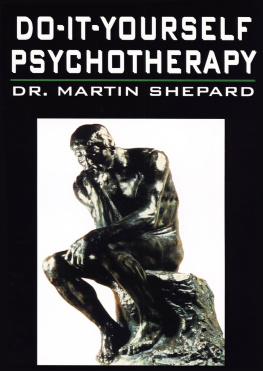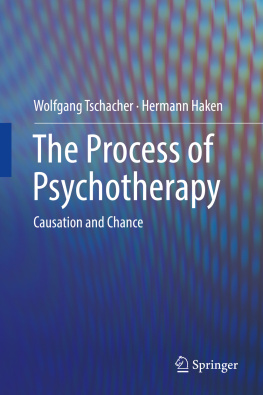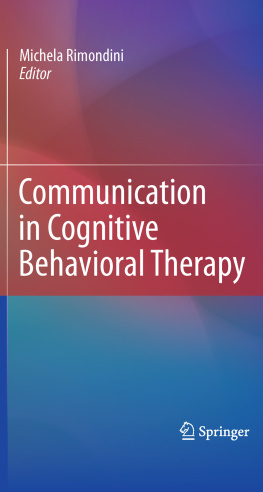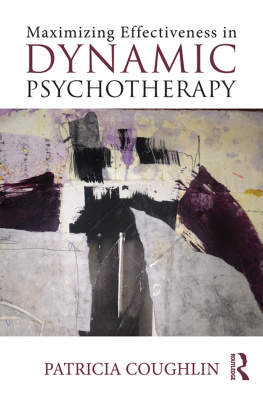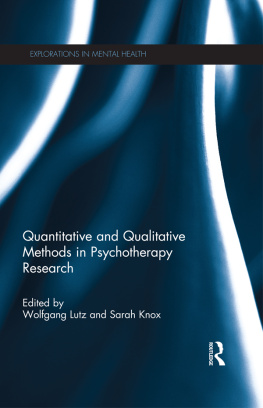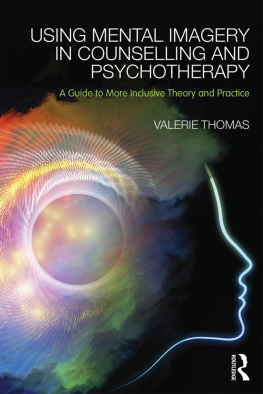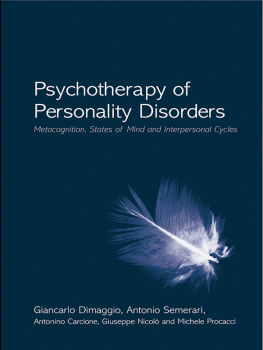Cover
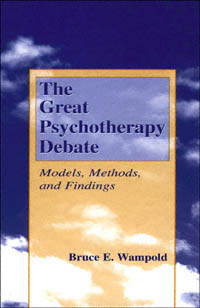
| title | : | The Great Psychotherapy Debate : Models, Methods, and Findings |
| author | : | Wampold, Bruce E. |
| publisher | : | Lawrence Erlbaum Associates, Inc. |
| isbn10 | asin | : | 0805832017 |
| print isbn13 | : | 9780805832013 |
| ebook isbn13 | : | 9780585379401 |
| language | : | English |
| subject | Psychotherapy--Philosophy, Psychotherapy--Evaluation. |
| publication date | : | 2001 |
| lcc | : | RC437.5.W35 2001eb |
| ddc | : | 616.89/14/01 |
| subject | : | Psychotherapy--Philosophy, Psychotherapy--Evaluation. |
Page i
This page intentionally left blank
Page ii
This page intentionally left blank
Page iii
The Great Psychotherapy Debate:
Models, Methods, and Findings
Bruce E. Wampold
University of WisconsinMadison

Page iv
Copyright 2001 by Lawrence Erlbaum Associates, Inc.
All rights reserved. No part of this book may be reproduced in any
form, by photostat, microfilm, retrieval system, or any
other means, without prior written permission of the publisher.
Lawrence Erlbaum Associates, Inc., Publishers
10 Industrial Avenue
Mahwah, NJ 07430
Cover design by kathryn Houghtaling Lacey |
Library of Congress Cataloging-in-Publication Data
Wampold, Bruce E., 1948
The great psychotherapy debate : models, methods, and
findings / Bruce E. Wampold.
p. cm.
Includes bibliographical references and index.
ISBN 0-8058-3201-7 (cloth : alk. paper)
ISBN 0-8058-3202-5 (pbk. : alk. paper)
1. PsychotherapyPhilosophy. 2. PsychotherapyEvaluation.
I. Title.
RC437.5 .W35 2001
616.89'14'01dc21 00-049020
CIP
Books published by Lawrence Erlbaum Associates are printed
on acid-free paper, and their bindings are chosen for strength
and durability.
Printed in the United States of America
10 9 8 7 6 5 4 3 2 1
Page v
To those who have loved me, and to B.C.,
whose challenging support created
the opportunity for growth and exploration
Page vi
This page intentionally left blank
Page vii
Contents
Foreword | ix |
Preface | xi |
1
Competing Meta-Models: The Medical Model Versus the Contextual Model | |
2
Differential Hypotheses and Evidentiary Rules | |
3
Absolute Efficacy: The Benefits of Psychotherapy Established by Meta-Analysis | |
4
Relative Efficacy: The Dodo Bird Was Smarter Than We Have Been Led to Believe | |
5
Specific Effects: Weak Empirical Evidence That Benefits of Psychotherapy are Derived From Specific Ingredients | |
6
General Effects: The Alliance as a Case in Point | |
Page viii
7
Allegiance and Adherence: Further Evidence for the Contextual Model | |
8
Therapist Effects: An Ignored but Critical Factor | |
9
Implications of Rejecting the Medical Model | |
References | |
Author Index | |
Subject Index | |
Page ix
Foreword
The "common factors" position on the effectiveness of psychotherapywhose lineaments were sketched between fifty and thirty years ago by such scholars as Jerome Frank, Hans Strupp, Victor Raimy, and Lester Luborsky among others, and whose empirical foundations were laid scarcely more than 25 years agohere attains its most forceful expression; and Bruce Wampold dons the mantel of foremost defender of a position with enormously important implications for mental health training, treatment, and public policy.
The common factors position (namely, that all of the many specific types of psychotherapeutic treatment achieve virtually equalor insignificantly differentbenefits because of a common core of curative processes) can move the focus of psychotherapy training and theory itself from therapist to client, from how the therapist "cures" to how the client "heals." The medical model of psychotherapy that Wampold so meticulously deconstructs in The Great Psychotherapy Debate has led us to accept a view of clients as inert and passive objects on whom we operate and whom we medicate. The implausibility that the great variety of specific ingredients in the multitude of psychotherapeutic approaches would yield indistinguishable outcomes is a strong clue that either it is instead a set of often unacknowledged common elements that is effective, or else it is a set of processes residing largely in the clients and merely mobilized by therapy that carries the power to improve clients' lives. This potential shift in perspective (from an emphasis on the differences among therapies to an awareness of the broad context in which therapeutic relationships are played out) can cause both therapists and theo- -
Page x
reticians to reflect less on their interventions and more on clients' efforts at making themselves whole. The shift carries a threat of narcissistic injury.
The common factors versus specific ingredients debate is at the heart of policy questions about the scope of national health care, as well as private insurance. There are those health policy analysts who argue that any therapy that uses non-specific diagnoses and non-specific treatments is somehow bogus witchcraft lacking indications of when to begin and when to end, and its application should be excluded from third-party coverage. There are two sides to this question, obviously. This debate is not just about mental health treatmentalthough mental health has been a very central issue in itbut it is a debate that extends through all aspects of medical insurance. The Great Psychotherapy Debate may well come to serve as a model for the empirical research that will informor fundamentally challengethe various sides in this important contest.
After nearly a century of marginally productive investigations based on a medical conception of psychotherapy, Professor Wampold is asking researchers to face the facts and move forward.
Gene V Glass
Arizona State University
Page xi
Preface
I am borne of two worlds. From about as long as I can remember, I loved mathematics, and the thrill of understanding deep structures and their beauty. Simple definitions leading to complex relationships; form and pattern expressed as chaos. The prime numbers, solid in definition, scattered seemingly at random. Rule governed, but complex and defying understanding. Mathematics, pure and pristine, yet finding application at every turn.
Next page

